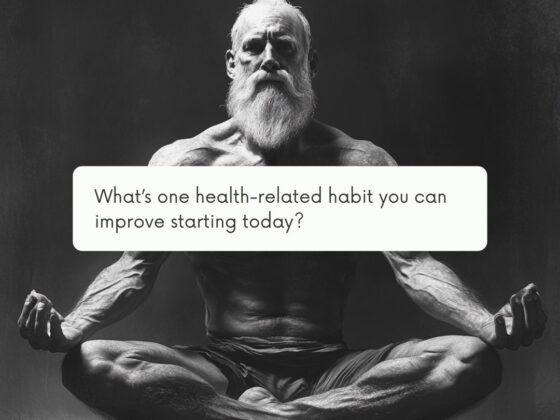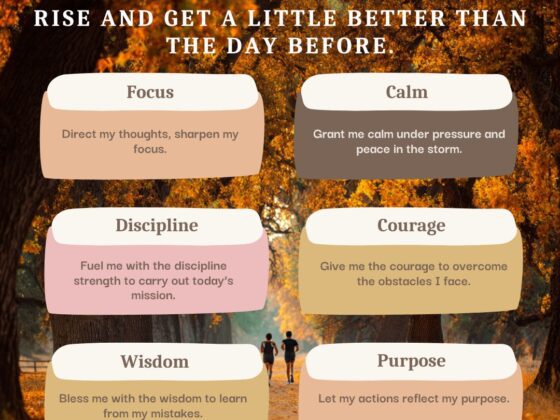“Reading is essential for those who seek to rise above the ordinary”
– Jim Rohn
Reading was one of my favorite pastimes as a child.
I remember my mom coming into my room late at night, giving me the evil eye because I was staying up too late.
There was many a late night where I was trying to keep my eyes open, not because I was forcing myself to finish the task, but because I was excited to see what was on the next page or chapter.
I could not put down books from my favorite authors: J.R.R. Tolkien, Lloyd Alexander, C.S. Lewis, and John Bellairs.
At some point, with the business of life, on-demand television, YouTube, and endless other distractions, reading became more difficult for me.
I have worked to re-energize my skill stack by adding reading as a part of my life and adding it back as an essential part of my skill stack, and I want to emphasize the importance of this skill to my readers.
Reading is more than just a habit—it’s a skill and a powerful one.
If you’re building a skill stack (the combination of skills that make you uniquely effective), reading is one skill you can’t ignore.
Even if focus feels impossible right now, committing to 10 minutes of reading daily can help you unlock untapped potential.
Why Should Reading Part of Your Skill Stack
With so many quick ways to learn, why should we still read?
Reading is often hailed as a cornerstone of personal growth, creativity, and mental clarity. Yet, finding time to read—even for 10 minutes—can feel like an uphill battle in our fast-paced, distraction-filled lives. Focusing on a book might seem nearly impossible between endless notifications, busy schedules, and the constant pull of entertainment on screens.
But here’s the thing: reading doesn’t just enrich your mind—it’s an investment in yourself. You don’t have to devour an entire book in one sitting to reap the rewards. Just 10 minutes a day can spark new ideas, sharpen your thinking, and help you build a habit that pays dividends over time. Small, consistent efforts can create a ripple effect in every area of your life.
The key is to remember that reading is a skill, and like any skill, it can be developed over time with practice and patience. If you can commit to setting aside just 10 minutes a day, you’ll discover that this small act has the power to transform your mindset, elevate your skill stack, and set you apart in a world where focus is increasingly rare.
Here are a few reasons why it matters:
- Small Habits Lead to Big Change: I love this one because it is so true and because I talk about the positive benefits of good habits and systems. James Clear, the author of Atomic Habits, emphasizes the power of small actions: “You do not rise to the level of your goals. You fall to the level of your systems.” Reading for just 10 minutes daily builds a system of consistent learning and self-improvement.
- Expand Your Knowledge Base: Every skill you master builds on what you already know. Reading broadens your perspective, deepens your understanding, and keeps you learning. Whether exploring leadership, self-discipline, or creativity, reading equips you with the tools to level up.
- Improves Critical Thinking: In a world flooded with information, your ability to discern, analyze, and apply knowledge is invaluable. Reading fosters critical thinking, making you better equipped to solve problems and make sound decisions.
- Enhances Communication Skills: Great communicators are almost always great readers. Books expose you to different writing styles, tones, and ideas, naturally improving your ability to articulate thoughts and connect with others.
- A Multiplying Effect: As Scott Adams (creator of Dilbert) explains, you don’t need to be the best at one thing. Instead, become good enough at multiple skills; your unique skill stack will set you apart. Adding reading to your stack multiplies the value of your existing skills by giving you access to new ideas and strategies.
Why is Reading 10 Minutes a Day Enough?
A common misconception is that you need hours of reading to make progress. But as the Japanese proverb 継続は力なり(Keizoku wa chikara nari) says, “Continuance is power.” Ten minutes a day doesn’t just add up; it compounds over time.
One of the best things about keeping your reading sessions short is that it frees up time to put your new knowledge into practice immediately. For example:
- If you’ve read about productivity techniques, reorganize your schedule in the next 10 minutes.
- If you’ve read about communication, reflect on a conversation you’ll have later and decide how to apply what you’ve learned.
- If you’re reading about self-discipline, challenge yourself to act on the principle you just read—whether it’s completing a workout, starting a journal, or avoiding a distraction.
It’s not about how much you read but how much you use what you read. By keeping your sessions short and focused, you’ll find the time to learn, reflect, and act, creating a cycle of growth that sets you apart.
Reading expands your knowledge, but action builds experience. Experience is where real growth happens because it gives you the confidence, clarity, and competence to move forward.
Taking What You Read to the Next Level
Reading is a powerful tool for growth, but knowledge alone isn’t enough to create the transformation you’re looking for. Simply consuming information won’t make you a better communicator, leader, or decision-maker—what you do with that knowledge counts. If you want to become the best version of yourself, you need to take what you read and put it into practice.
How often have we heard terms like that person is “book smart?” Reading is the foundation for creating the knowledge we need to become the best versions of ourselves, but putting what we learn into practice daily is where we turn what we learn into expertise and experience.
“I have been impressed with the urgency of doing. Knowing is not enough; we must apply. Being willing is not enough; we must do.”
– Leonardo da Vinci
Think of reading as the first step in a larger process. It provides the outline and helps you understand a possible framework for success, but it’s up to you to take the journey. Without action, even the most life-changing insights can fade into the background, leaving you no closer to your goals than when you started.
Before I moved to Japan as an exchange student, I studied Japanese at a college level for over two years. I was not always the best college student, but I had a foundational and basic understanding of the Japanese language before my move to Japan. Guess what? It did not help me at all. To this day, I remember being woken up by the landlord’s wife (manager) for my dorm. To this day, I still do not know what she was saying to me. All the knowledge I had learned in school and read in books did not help me because I did not have enough experience using Japanese in real-life scenarios.
Today, twenty-plus years later, I have put what I learned into practice and am very proficient in Japanese.
Reading is a foundational skill that can transform your life, but only if you take it beyond what is written on the page. So the next time you read, ask yourself: How can I use this today? Take the first step. Your future self will thank you.
I Have No Time to Focus, How to Build My Reading Habit
Building the habit of reading for 10 minutes daily—especially when it feels challenging to focus—requires intentionality, strategy, and patience. Focus doesn’t come naturally in a world full of distractions, but with a few practical steps, you can turn reading into a daily ritual that becomes second nature.
My experience with this is that I have a wife and boys that I love more than anything. However, they can be distracting when I try to focus on reading, writing, and personal projects. That is why I park at a local coffee shop at 6 a.m. to concentrate on writing this content.
Here are some hints for focusing on reading. Some may work for you, and some may not. I would love to hear if you have items that help you that are not on my list.
- Be Intentional: Start by defining why you want to read. Are you trying to improve a skill, learn something new, or relax? When you have a clear purpose, staying motivated and focused is easier. Write down why you are reading daily. Write it on your bookmark to remind yourself daily of the purpose of the habit you are trying to form.
- Find Your Perfect Reading Space: As mentioned above, my space is often the local coffee shop. I also have a comfortable chair in our home bedroom that, when combined with a pair of headphones, creates a distraction-free space. Environment matters when it comes to focus. Designate a specific spot in your home where you can read without distractions. Whether it’s a cozy corner, your favorite chair, or even your bed, having a go-to spot signals your brain that it’s time to focus.Your space may change as your life changes. I could lie in bed and read for hours when I was younger. Today, lying in bed with a book is an immediate formula for falling asleep. I have to be in a seated position in a well-lit location.
- Short and Steady: Don’t immediately overwhelm yourself by aiming for long sessions. Start with 10 minutes. If you struggle to focus, begin with 5 minutes and gradually work up to 10. The key is to do it consistently at the same time each day, so it becomes automatic—like brushing your teeth. Consistency is kind when trying to form your daily reading habit.
- Habit Anchoring: Forming a reading habit is the primary purpose of this topic, but you will also find that the concept of habit stacking is critical to your self-improvement journey. Attach your reading time to another habit you have already formed. I have a rock-solid daily coffee-drinking habit. Some might call it an addiction, but I call it a habit. Attaching 10 minutes of reading each day to my daily coffee-drinking habit increases the chances that my new habit will stick.Some examples include reading after your morning coffee, picking up a book before bed, and Reading while waiting for your kids at practice or during your commute.By anchoring it to something familiar, you make remembering and following through easier.
- Binaural Beats: This one may create some controversy, but it has been helpful to me. Listening to instrumental music, soundtracks, and binaural beats helps me focus on work and, more specifically, reading. If you struggle to focus while reading, consider incorporating binaural beats into your routine. Binaural beats are a form of soundwave therapy that can enhance focus, reduce stress, and create a mental environment conducive to deep concentration. Listening to them while reading can help you stay immersed in your book, especially in a noisy or distracting environment.Binaural beats encourage brain synchronization, reduce anxiety and stress, and increase attention span. I have linked a few credible sources below if you want to learn more about binaural beats.
- Use Tools to Minimize Distractions: Distractions are the biggest enemies of focus. Use these tips to combat them:Turn off notifications: Silence your phone or put it in another room while you read.Set a timer: Knowing you only need to focus for 10 minutes makes it easier to stay engaged.Use a bookmark: Knowing where you left off saves time and keeps you in the flow.
- Track Your Progress: Keep track of your reading streak to motivate yourself. You can use a notebook, a habit-tracking app, or even a simple calendar. Each day you complete your 10 minutes, check it off. Watching the streak grow is incredibly satisfying and helps reinforce the habit.
Final Thought
Once you’ve successfully established the habit of reading for 10 minutes daily, you might naturally want to read more. That’s the power of momentum. Focus becomes more straightforward, and reading transforms from a chore into a genuinely enjoyable habit.
Remember, the most challenging part of any habit is starting. Focus on showing up daily, and soon, you’ll find yourself looking forward to those 10 minutes of quiet growth and learning. Ten minutes isn’t just enough—it’s powerful when done with intention. It’s not about how much you read but how much you use what you read. By keeping your sessions short and focused, you’ll find the time to learn, reflect, and act, creating a cycle of growth that sets you apart.
So, the next time you pick up a book, don’t just read to finish—read to transform.
The Day Warrior
Here are a few credible sources that highlight the benefits of binaural beats:
- Scientific Reports (2020): A study published in Scientific Reports found that binaural beats in the gamma frequency range (30–100 Hz) improved focus and mental alertness during tasks requiring sustained attention. (Link to the study)
- Psychiatry Research (2019): This research highlights how binaural beats in the theta and alpha ranges help reduce anxiety, which indirectly supports better concentration on tasks like reading. (Link to the study)
- The Journal of Neurotherapy (2008): A study reported that alpha-frequency binaural beats were effective in promoting relaxation and focus, especially during activities requiring concentration. (Link to the study)
- Frontiers in Human Neuroscience (2014): This study explains how auditory entrainment through binaural beats can enhance cognitive function and attention span. (Link to the study)
How to find more content from The Day Warrior:
If you enjoyed this newsletter, please subscribe.
If you want to provide feedback, please take The Day Warrior Survey.
If you want to have a deeper discussion about this subject, please get in touch with The Day Warrior.
Follow me on X for daily short and long-form content: @thedaywarrior.
My LinkedIn information is here: https://www.linkedin.com/in/the-day-warrior/
I am also on Instagram: @thedaywarrior.
My website is http:/thedaywarrior.com.
“Never blindly accept what you read online. Always challenge it with an open and critical mind.”
– The Day Warrior.










